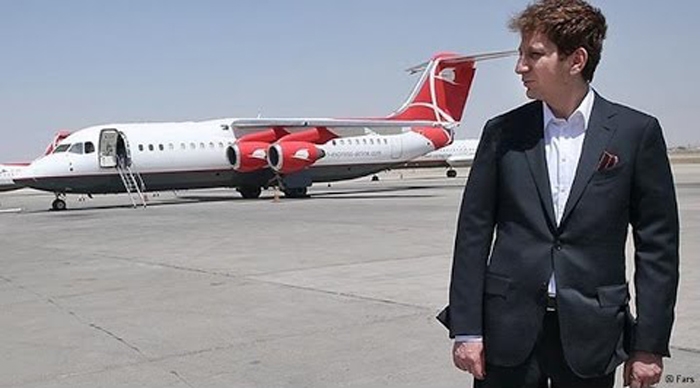Iranian tycoon sentenced to death for $2.8bn fraud

An Iranian billionaire has been sentenced to death for corruption after he was found guilty of fraud and economic crimes totalling $2.8bn.
Babak Zanjani received the sentence on Sunday after a lengthy trial.
During the era of president Mahmoud Ahmadinejad, Zanjani became known for finding ways to channel hard currency from oil sales to Tehran despite international financial sanctions imposed on the Islamic republic's banks.
The 41-year-old was convicted for illegally making billions of dollars using the scheme.
As well as facing the death penalty, he must repay money to the state, judiciary spokesman Gholam Hossein Mohseni-Ejeie said at his weekly press conference.
The trial was held in public, a rarity for such a major case in Iran, and two other accused were also convicted of "corruption on earth," the most serious offence under the country's criminal code, meaning they too will face the death penalty, AFP reported.
"The preliminary court has sentenced these three defendants to be executed, as well as paying restitution to the plaintiff," Mohseni-Ejeie said, adding that meant the oil ministry.
They must also pay a "fine equal to one fourth of the money that was laundered," the spokesman said.
Zanjani denies any wrongdoing, insisting that the only reason the money had not been paid to the oil ministry was that sanctions had prevented a planned transfer from taking place. He can appeal against his sentence.
The case, however, follows repeated declarations from the current government of President Hassan Rouhani that corruption and the payment of illegal commissions thrived under Ahmadinejad's rule. Other trials are ongoing.
Cutting out the middleman
Zanjani had repeatedly said in media interviews that in return for commissions paid by Ahmadinejad's government, he was tasked with circumventing sanctions to get money back to Iran.
In October last year, however, Rouhani's oil minister, Bijan Zanganeh, signalled the shifting political balance in Iran, hitting out at the use of middlemen such as Zanjani, who before being arrested had boasted of his personal wealth, which Iranian media put as high as $13.5bn.
Speaking after Iran concluded a nuclear deal with world powers, paving the way for increased foreign activity in Iran's oil sector, Zanganeh urged investors to deal directly with his ministry and avoid third parties.
"We despise the corrupt parasites that want to suck the nation’s blood even in this situation," Zanganeh said, to loud applause at an oil and energy industry event in the capital while Zanjani's trial was under way.
Zanjani was among numerous Iranian individuals blacklisted under US and European sanctions.
New MEE newsletter: Jerusalem Dispatch
Sign up to get the latest insights and analysis on Israel-Palestine, alongside Turkey Unpacked and other MEE newsletters
Middle East Eye delivers independent and unrivalled coverage and analysis of the Middle East, North Africa and beyond. To learn more about republishing this content and the associated fees, please fill out this form. More about MEE can be found here.

